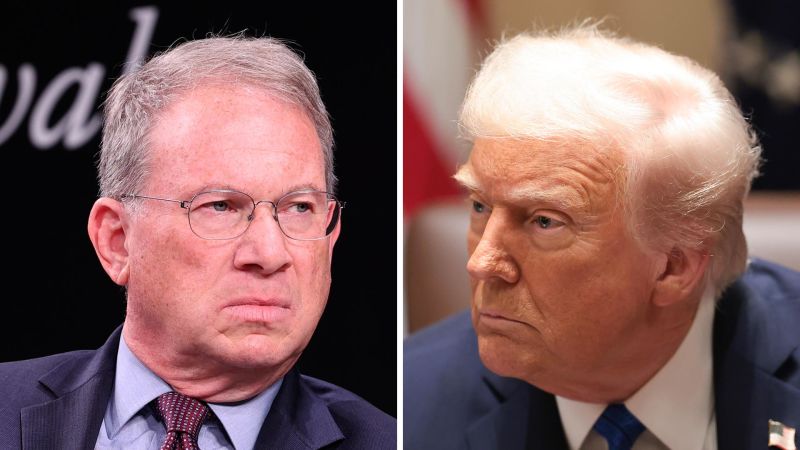On a noteworthy Thursday, former President Donald Trump took to Truth Social to announce his upcoming meeting with Jeffrey Goldberg, the editor-in-chief of The Atlantic. The decision to conduct this interview was underscored by an incident earlier in the year. In late March, Goldberg had inadvertently been included in a Signal group chat that contained classified discussions among several top officials during Trump’s administration. This event, dubbed the “Signalgate” scandal, raised eyebrows due to the apparent breach of protocol regarding sensitive national security information.
Trump, demonstrating his characteristic bravado, stated that his primary motive for participating in the interview was “out of curiosity,” framing it as a personal challenge. He suggested that this conversation would serve as a litmus test to determine whether The Atlantic could produce a truthful account of his presidency. Historically, Trump has made accusations against various media outlets for publishing what he claims are “fictional stories” about him, often without substantiation. He taunted the publication by questioning their ability to write a fair story on his presidency, declaring, “what can be so bad — I WON,” a reference to his claim of electoral victory, despite his loss in the 2020 election.
The interview will feature input not only from Goldberg but also from notable Atlantic writers Michael Scherer and Ashley Parker. Trump mentioned that the discussion would be part of a larger piece entitled “The Most Consequential President of this Century,” hinting at the publication’s intent to thoroughly analyze and interpret his impact on American politics and society.
The lead-up to the Trump-Goldberg interview is particularly significant given the context of the previous scandal. Goldberg had found himself in a precarious situation when National Security Adviser Mike Waltz mistakenly added him to an important Signal group. This group was utilized to deliberate on a potential U.S. strike against Houthi rebels in Yemen, thus intertwining serious national security issues with flaws in communication security protocols. Following the incident, Goldberg remained reticent, uncertain about the legitimacy of the discussion unfolding within the chat. Yet, as the conversation progressed, it was revealed that classified military information was indeed discussed.
The revelations pushed the Trump administration to initially downplay the severity of the incident, asserting that no classified details were disclosed. Defense Secretary Pete Hegseth, one of the participants in the chat, asserted that “nobody’s texting war plans” and characterized Goldberg as “deceitful and highly discredited.” In turn, Goldberg decided to release screenshots of the conversation in subsequent reports, allowing readers to determine the validity of the claims regarding the information shared in that Signal chat.
In the aftermath of the scandal, pro-Trump media outlets largely defended Trump and his aides. Notably, Fox News personality Kayleigh McEnany, a former aide to Trump, categorized the error as a “blatant mistake” but downplayed the credibility of Goldberg as a journalist. Fox News host Jesse Watters went further, suggesting that Goldberg had somehow infiltrated the private chat, raising questions about the security and trustworthiness of communications within the administration. Waltz himself stressed that he had no prior relationship with Goldberg, further complicating the media perception of the event.
Trump’s history of antagonism toward Goldberg adds another layer to this interview. In 2020, Goldberg authored a controversial article claiming that Trump had disparaged American veterans by calling them “suckers” and “losers.” Trump, evidently still aggrieved by that narrative, referred to the article in his recent announcement as a “made-up HOAX,” reinforcing his longstanding pattern of attacking media figures who challenge his worldview.
The Atlantic has opted not to comment on the impending interview, standing aside as the drama unfolds. Through this lens, the upcoming dialogue between Trump and Goldberg stands as a pivotal moment, reflecting broader tensions between political figures and the media landscape, particularly in the polarizing environment shaped by Trump’s presidency. Hadas Gold contributed to this report, underscoring the collaborative effort of journalists to keep the public informed amid the intricacies of political discourse and reporting.



